Resources
What you’ll learn from your Couple Report
5 min read
Christina Ren

The purpose of this Couple Report is to tell you about possible genetic predispositions of your future child. Before your results, we’ll walk you through a few key concepts to help to help you understand your report so that you know what to expect.
Christina Ren
, Certified Genetic CounselorWhat is a “common condition”?
Common conditions are considered those that are observed frequently in a population. Common conditions like heart disease and diabetes are often caused by a combination of genetic and environmental factors.
In our test, we look at common conditions that can affect the heart, brain, and the child’s overall health. Beyond “common” conditions, there are also “rare” genetic conditions that this test does not evaluate.
How are the genetics of common conditions determined?
We look at many specific genetic variants associated with each common condition. While individually each of these genetic variants might only have a small effect, their combined effect can be large. The “genetic risk score” is our estimate for how much those variants might matter for your potential child.
You can think of each of these variants as a marble in a jar, with the amount of marbles representing your child’s genetic susceptibility to certain conditions.
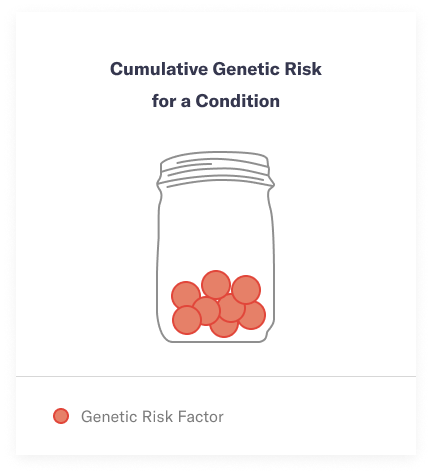
What is genetic risk?
Differences in our DNA result in different genetic susceptibility to certain conditions.
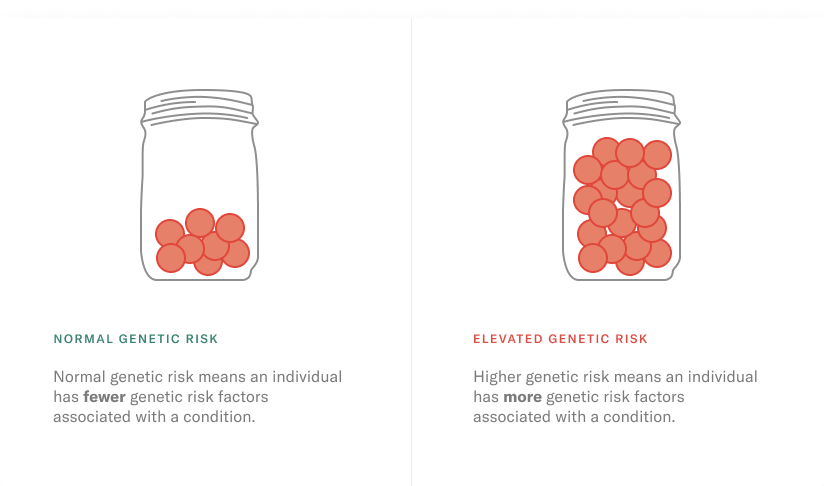
How do we estimate your future child’s genetic risks from your DNA?
Sometimes, genetic risk factors linked to increased risk for developing a condition cluster unevenly in one individual, just by random chance.

We run many simulations of the ways you and your partners’ DNA (and associated genetic risks) can combine. This gives us a sense of which disease risks might be elevated in your potential child or children. We then report to you how often we see risk-increasing combinations of genetic variants.
Think of this statistical modeling as us sorting through many jars of marbles that each represent unique DNA combinations your child could inherit.
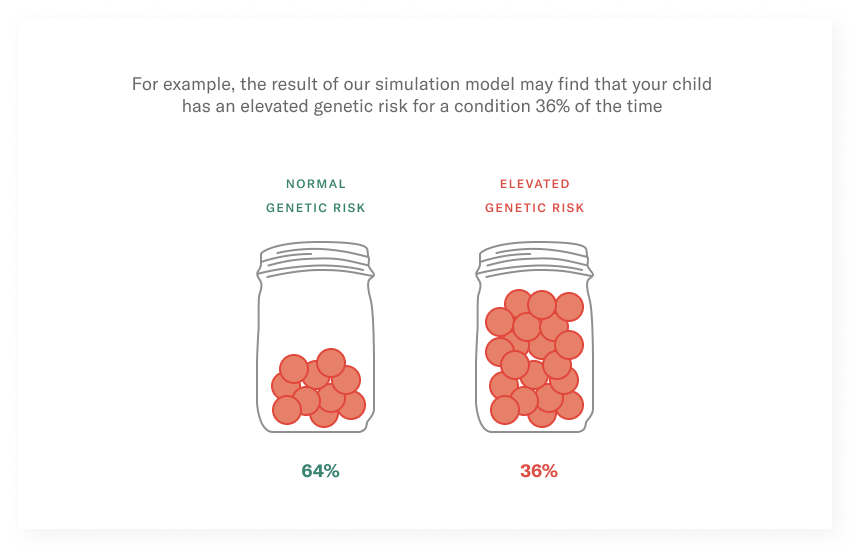
What is the chance you could have a child with elevated genetic risk for any of these conditions tested?
68%
Most couples receive a normal result
meaning your future child’s risk of developing the conditions tested is similar to the general population
32%
Some couples receive an elevated genetic risk result
meaning the chance your future child has an increased genetic predisposition to specific conditions is higher.
If your future child has an elevated genetic risk for a condition, then the risk of developing that condition at some point in their life, also known as lifetime risk, is higher than in the general population.
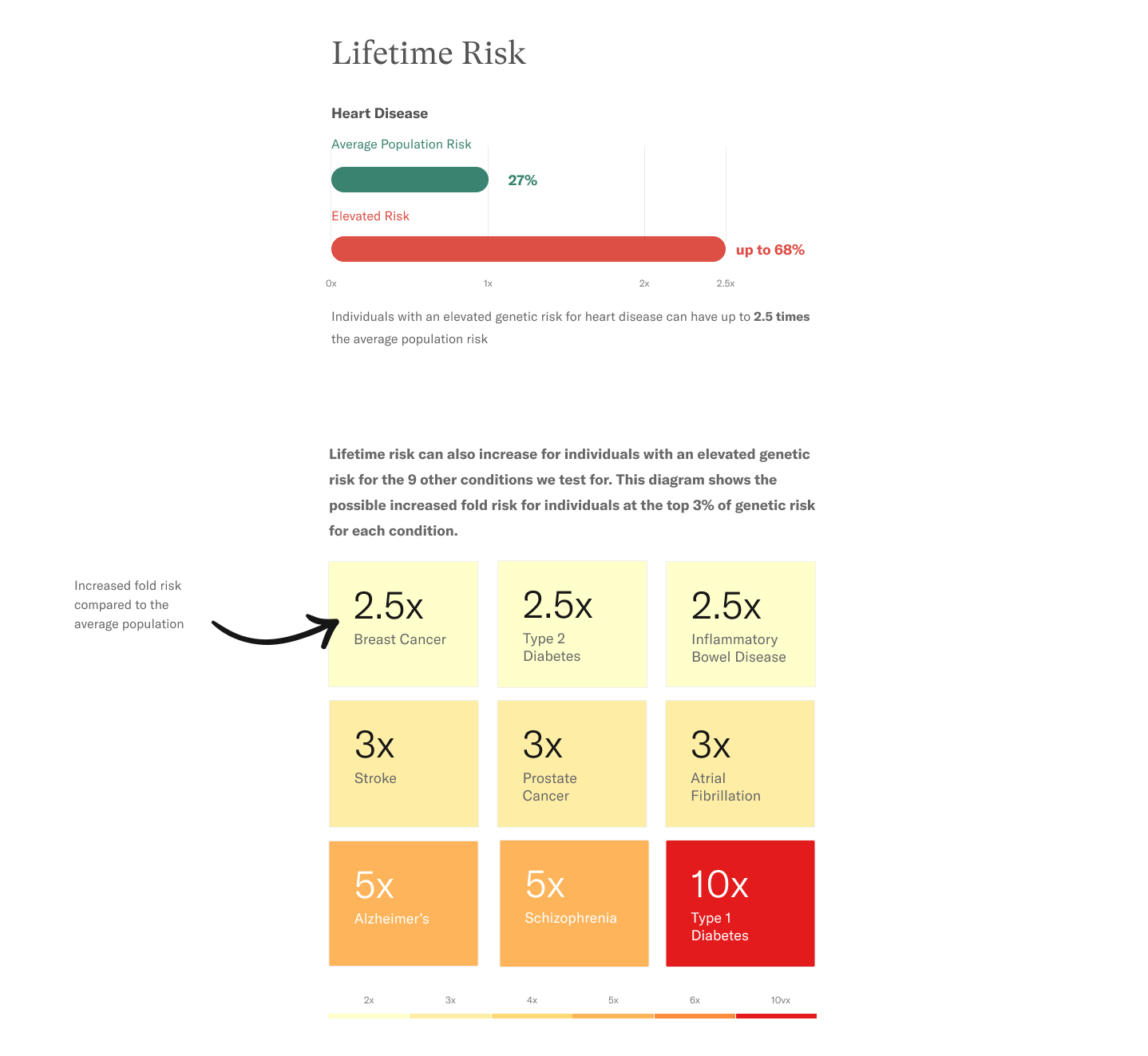
*Here, we refer to coronary artery disease as heart disease. Lifetime risk varies based on sex; females on average have a 19.2% chance of developing coronary artery disease by the age of 80, which is lower than for men (Lloyd-Jones, D.M., et al., 2006).
Given the same lifestyle choices or environmental exposures, an individual with elevated genetic risk is more likely to have an overflowing jar, representing the development of a condition, compared to an individual with normal genetic risk.
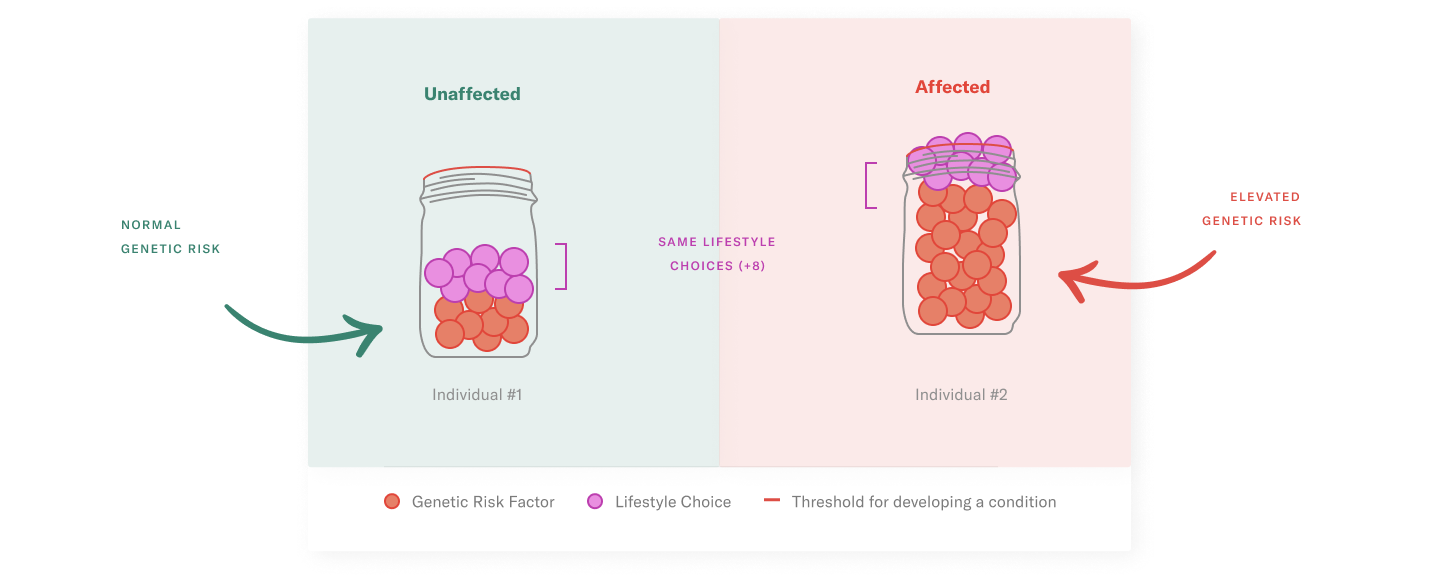
However, having an elevated genetic risk does not mean you or your child will get that condition. Your unique lifestyle choices and environmental exposures can also impact whether you’ll be affected. For example, someone with the same genetic risk as you can develop a condition while you do not because you may have made more optimal lifestyle choices.
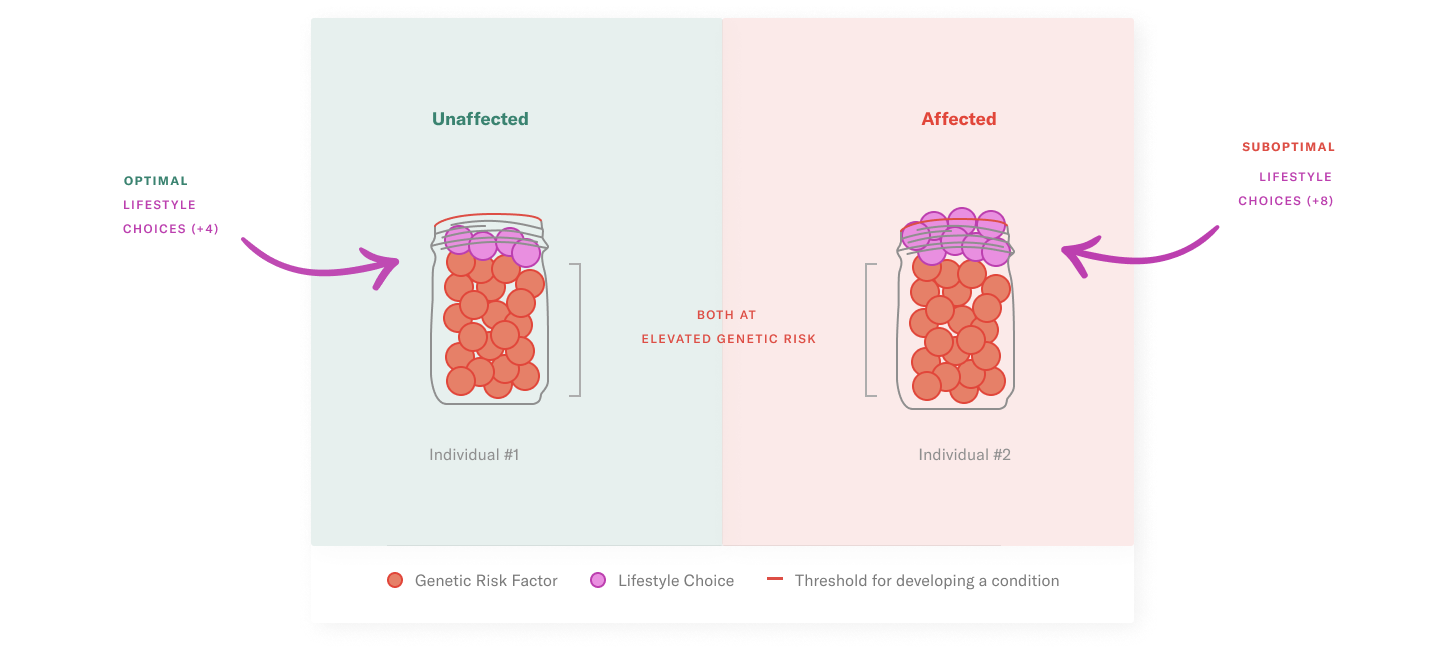
What can you do about your results?
Knowing if your children may be at an increased genetic risk for certain common conditions empowers you to be proactive about your reproductive health and plan for the future.
Early prevention and treatment
Increased awareness, screening, and lifestyle modifications can help prevent or identify conditions early.
Embryo screening
If desired, screening your embryos created through in vitro fertilization (IVF) can potentially reduce your child’s genetic risk
2020 Orchid, Inc. All rights reserved.
Terms
Privacy Policy